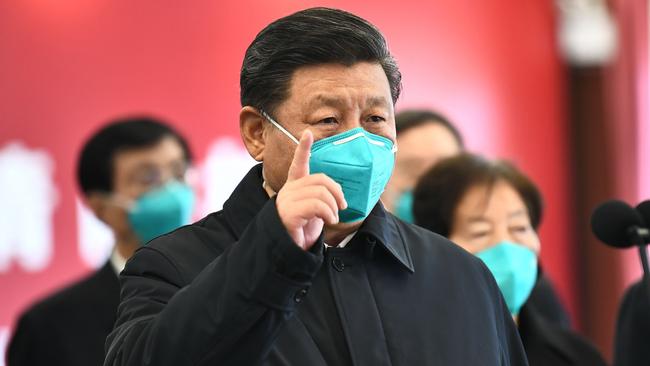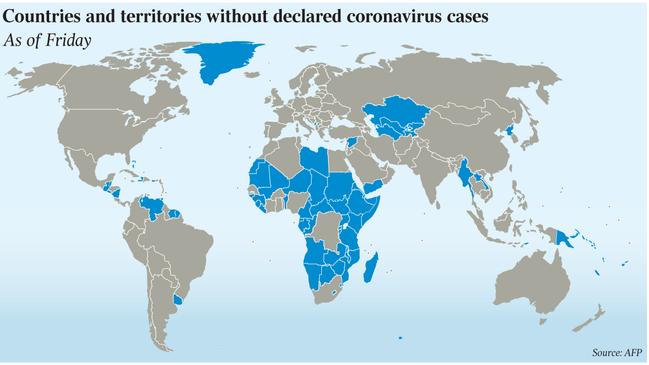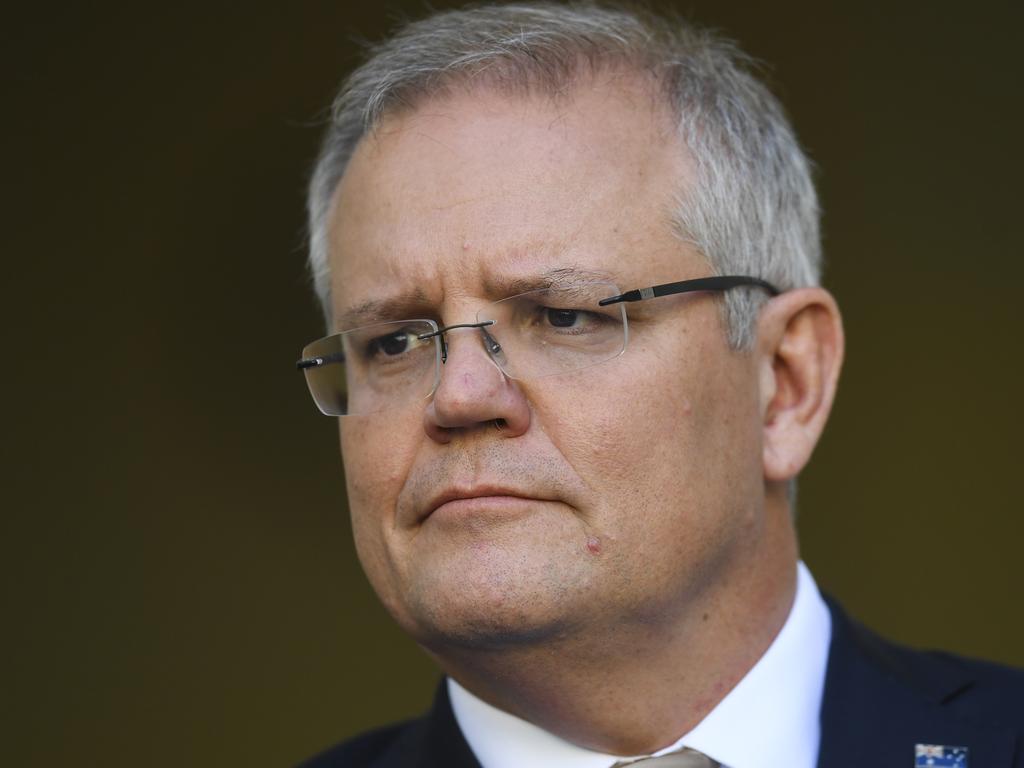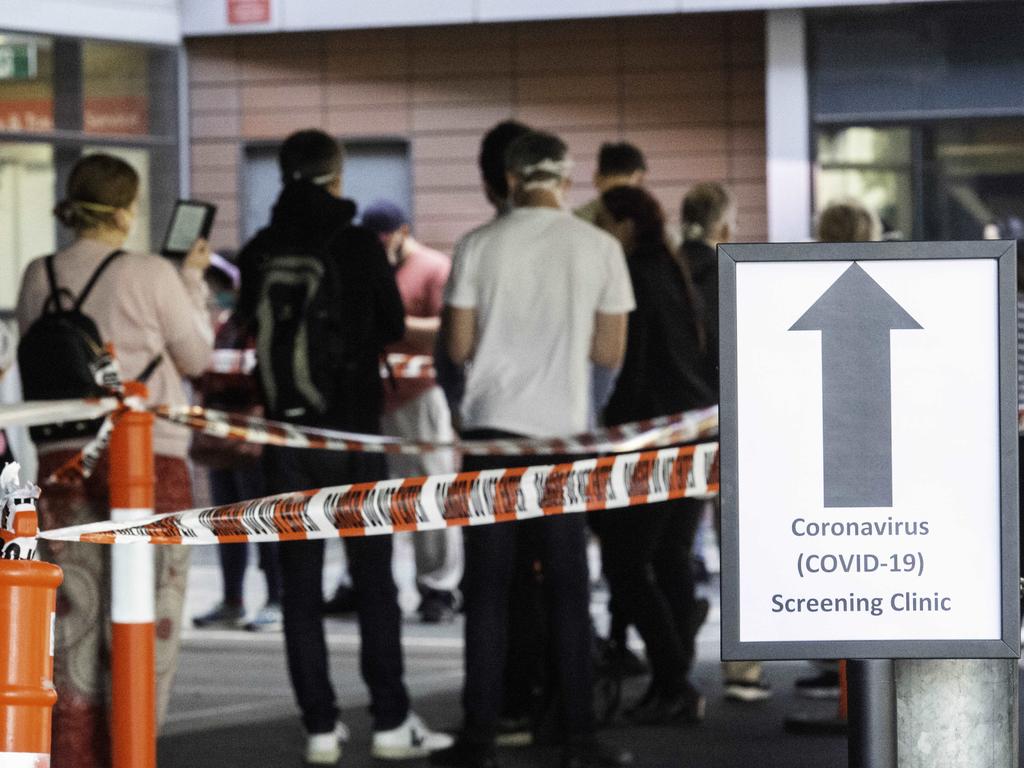
Consider the timing. The rescue operation at the Xinjia Hotel was still under way as the Chinese President set off for a highly choreographed trip to Wuhan, the epicentre of COVID-19, accompanied by Wang Huning, the Communist Party’s chief ideological thinker and the key proponent of “Xi Jinping Thought”.
Built in 2013, the hotel had in recent weeks been converted into a coronavirus observation facility.
“Buildings collapse in China all the time,” a local journalist explains to Inquirer, when asked why reporting of the tragedy has been cursory. At least 20 people died in the hotel and nine were still missing when the “commander-in-chief of China’s war against COVID-19” — the latest title given to Xi by state media — declared: “Victory for Wuhan, victory for Hubei and victory for China!”
By Thursday morning — with Xi now believed to be back in his compound in Zhongnanhai, adjacent to Beijing’s Forbidden City — the rescue operation at the collapsed hotel was called off. The death toll had climbed to 29 — almost 10 times the number of COVID-19 fatalities in Australia.
Emergency Management Vice-Minister Shang Yong blamed “illegal renovations”, which took place below 58 people who were in the hotel because of the Chinese government’s quarantine instructions. Most had travelled to Fujian to return to work.
“This is a workplace accident caused by human factors,” said Shang.
The tragedy undermined the claim that China’s “People’s War” on the coronavirus demonstrated the superiority of the idiosyncratic mercantile-Leninist system of government.
That the new coronavirus first spread widely at a Chinese live animal market in Wuhan is hugely embarrassing for the world’s second-biggest economy. It jars with the narrative of progress made since the 2003 SARS coronavirus, which scientists believe also originated in a “wild flavours” market in China.

Even more damaging to the China model has been its reflex to cover up bad news.
Doctors at Wuhan’s Central Hospital told Caixin, a rare independent Chinese publication, the actions by local authorities in early January had led to the deaths of many of their medical colleagues and allowed the outbreak to overwhelm the city’s health system.
“The false information released by the relevant departments — claiming the disease was controllable and would not spread from human to human — left hundreds of doctors and nurses in the dark, doing all they could to treat patients without knowing about the epidemic,” a department head at the hospital told Caixin in an article published this week.
Doctors at the hospital, speaking on the condition of anonymity, linked the outbreak to China’s governance model. They told Caixin the hospital’s party chief — who had ultimate responsibility for the hospital — was the former head of human resources at Wuhan’s health authority, did not properly understand infectious disease and banned doctors from spreading critical public health information.
“China is obviously really worried about the impact on its image and international standing,” Richard McGregor, an expert on the Chinese Communist Party at the Lowy Institute, tells Inquirer.
This week, emboldened by the success of what the World Health Organisation has called its “all-of-government and all-of-society” effort, the Chinese government ramped up the retelling of its COVID-19 story, relegating early embarrassments as blunders by inept local officials promptly addressed by the central party’s enlightened leader.
“Xi is the backbone of this battle,” said Liu Jingbei, a professor at the China Executive Leadership Academy, in a 2000-word piece published by the state-controlled Xinhua news service to commemorate the Chinese leader’s visit to Wuhan.
With the daily number of new coronavirus cases dropping from thousands to 19 on the Monday before the Wuhan trip, Xi declared victory in the battle this week while wearing a blue N95 face mask made by US multinational 3M.
Hours earlier, on television screens in America, Fox News host Tucker Carlson was talking to Donald Trump, the leader of the world’s other superpower.
Carlson was trying to impress on President Trump that COVID-19 - which the influential television presenter called “the Chinese coronavirus” - was a genuine health emergency, not a fabrication of “the left”.
Or at least, that is how many interpreted the bracing Monday night editorial by Tucker, one of the President’s regular confidants.
“People you know will get sick, some may die. This is real,” Carlson said.
The fast-spreading coronavirus was transmuting into a story about the governance system of America, the rival China’s leaders are obsessed with beating.
A malfunction in test kits made by the US Centres for Disease Control and Prevention meant the world’s richest country had been in the dark for weeks about its COVID-19 outbreak.
Even many of the President’s supporters were alarmed by Trump’s breezy approach to the emergency, which was taking place in a country with a user-pays healthcare system in which more than 80 million people have no or little health insurance.
Two months after the weaknesses of the China model were brought into sharp relief, now it was America’s turn. “The way the Chinese would phrase it is: ‘We passed the test. Now what about you?’,” says McGregor.
The speed with which COVID-19 has been enlisted in the rivalry between Washington and Beijing has been remarkable.
The Party’s Propaganda Department has been revelling in its rival superpower’s emerging struggle with the coronavirus, with the state controlled Xinhua republishing online threats of a “strategic” ban on the export of medical products that would plunge the US “into the mighty sea of coronavirus”
Global Times, another state run outlet guided by the Party’s Propaganda Department, followed up with a report that US restrictions on China’s tech giant Huawei could be met with a ban on “the export of face masks and other medical gear to America which are in acute shortage due to the rapid spread of the coronavirus”.
Allan Gyngell, a doyen of Australian foreign policy and former adviser to prime minister Paul Keating, says the biggest shock to the international system since the global financial crisis is revealing the fragilities and weaknesses in the two superpowers.
“And it’s going to bring those weaknesses into sharp relief,” he says. But Gyngell, the former head of the Office of National Assessments, doubts people will change their mind about either model.
“People will take the lessons they want to take,” he says.
Rory Medcalf, head of the National Security College at the Australian National University, thinks it may be that smaller countries best withstand the “black elephant” event of COVID-19.
The coronavirus, which this week scuttled the London launch of Medcalf’s new book, Contest for the Indo-Pacific: Why China Won’t Map the Future, highlights that “smaller players cannot be dismissed”.
Medcalf acknowledges the success of states such as Singapore — which, despite being an international transit hub enmeshed with the Chinese economy, has had only 178 confirmed cases and not a single death — may lead some to ask if a more authoritarian model works better in managing a shock like COVID-19. “But that takes us back to the origins of the crisis, which I think are very much the systematic suppression of truth at the heart of the Chinese Communist Party,” he says.
Medcalf is impressed by the response of Taiwan, another of the Chinese Communist Party’s obsessions, which despite its geography — and China’s determination to keep it out of the WHO — has had only 49 confirmed cases and one death. That compares with the more than 80,000 cases and 3000 deaths in mainland China, an impressive result, even after adjusting for their different population sizes.
“They’ve had a very firm response, but within a democratic framework, with accountability and transparency,” says Medcalf of the island that sits just off the coast of Fujian province, the site of the collapsed quarantine hotel. No wonder the party’s propaganda machine can’t stand the place.








Imagine what China’s propaganda machine would have said if the hotel used for coronavirus quarantine had collapsed in the US rather than Fujian, the province in which Xi Jinping served 17 years of his political apprenticeship.